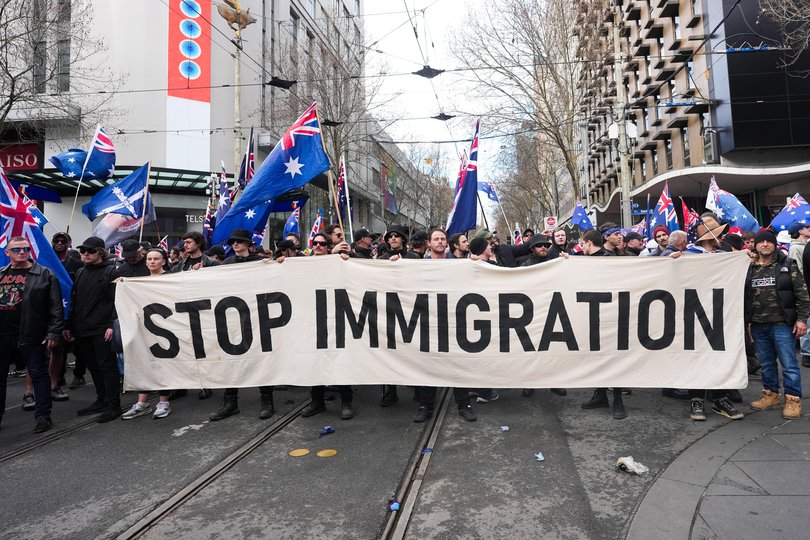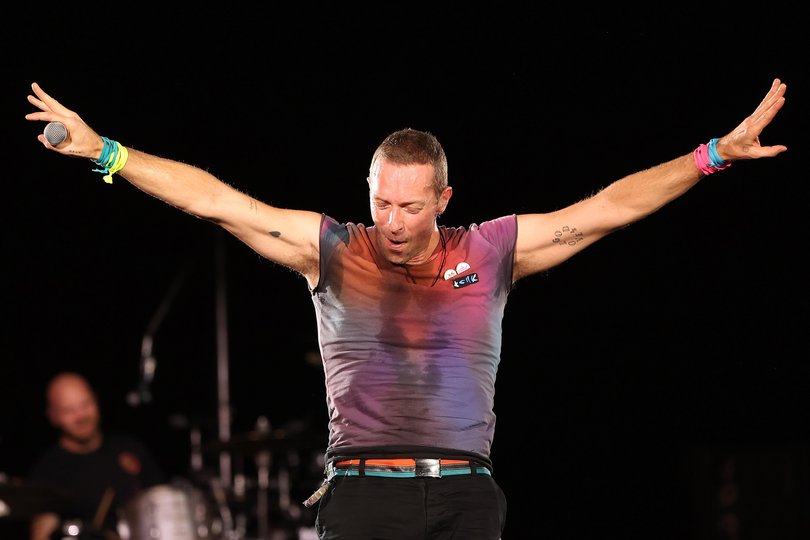JUSTIN LANGER: My former enemies, Englishmen like Kevin Pietersen, are now my allies as I coach London Spirit
JUSTIN LANGER: As the world appears to being getting more divided there is one fractious relationship that always tests our patience - the one with the English!
“Heigh-ho, heigh-ho, it’s off to work we go (whistle), heigh-ho, heigh-ho, heigh-ho, heigh-ho, heigh-ho.”
The world’s gone bloody mad I thought.
But, back to that in a minute.
Sign up to The Nightly's newsletters.
Get the first look at the digital newspaper, curated daily stories and breaking headlines delivered to your inbox.
By continuing you agree to our Terms and Privacy Policy.How many times do we hear those words these days, “the world’s gone bloody mad”. Once upon a time in Australia, “she’ll be right mate” or “how ya goin’ mate” were more frequently used Australianisms. Today “the world’s gone bloody mad’” seems to be the most-used phrase of our vocabulary.
Having spent the last five weeks in the UK, those five words are used as regularly as they are in most countries I visit today.
To be fair, some topics we hear or read about border on pure absurdity, provoking the theory that the world has actually gone mad. At times it is hard to disagree with this sentiment.
The problem is, not everyone sees it that way.
Some people I know and who I’ve worked with see current social movements as progressive, necessary corrections to historical injustices.
They often reject the term “wokeism” entirely, viewing it as a dismissive label for legitimate efforts toward social justice and equality.
On the other hand, others view today’s social issues as destabilising over-reach, believing excessive focus on identity politics, cancel culture, public shaming, rapid social and institutional policy changes, are equally unjust.
Each believe the world has in fact gone mad, but for very different reasons.
Both sides often feel their fundamental values are under attack. Our nation built on mateship and a “fair dinkum attitude, now grapples generational divide often causing tensions with different age groups who have vastly contrasting views of the world.
Financial stress and cost of living pressures are also heightening cultural anxieties. The March for Australia protests of last weekend, gate-crashed by a minority with extremist views, have taken up headlines all week both Down Under and in the UK.

Amplified by 24/7 news cycles and social media that creates echo chambers and platforms for radical voices, there is a strong sense that society is fragmenting.
We are getting to the point where the left and right, and east and west are getting angrier and further apart. This can only lead to tensions where no one is a winner.
Have you noticed that society tends to label people, or groups of people, by their race, religion, gender, sexual preferences or political inclinations? This is a trap which is as absurd as some of the other rubbish we read about today.
Since I was a kid, I was programmed as an Aussie to hate the Poms. Not in the literal sense of course, but in a competitive way. I’m sure you know what I am saying. The Ashes, Winston Churchill and Gallipoli, whingeing Poms and all of that. Funny thing is, that it is not just us Aussies.
On Monday I was sitting with an old County Cricket teammate of mine in a pub in London. Solving the problems of the world, he told me that under no circumstances could he wish Australia to win anything.
“Every time Australia plays, I hope they lose,” he said. “Sorry mate, I love you, but I just hope you guys lose everything.”
In other words, the English feel the same way.
In my last season playing professional cricket for Somerset in England, I was batting against county team Hampshire. I was 39 and well and truly coming to the end of my career.
Early in my innings a young lad with blonde hair wandered past me whistling the tune to the seven dwarfs.
The Barmy Army had taken great pleasure in singing the tune about me every time I played an Ashes Test match, so I was familiar with the sentiment.
“Heigh-ho, heigh-ho, it’s off to work we go (whistle), heigh-ho, heigh-ho, heigh-ho, heigh-ho, heigh-ho.”
This disrespect from a young whipper snapper was like the proverbial red rag to a bull. All his English mates thought it was hilarious.
With all my might I let the kid know what I thought about him and his smart-arse attitude. As I went on my rant, one of his teammates with a fancy haircut puffed his chest out and gave it back to me with the full force of a big brother protecting his younger sibling.
That agitator was Kevin Pietersen and his fuel back then simply led to the fire of my belief that anyone playing for England was a “nob” and it was no wonder we hated them so much.
The them vs us mentality was alive and well.
The Barmy Army, Geoffrey Boycott, Ian Botham, Bob Willis, warm beer and horrible weather all add up to the narrative of an Aussie’s dislike for our English counterparts.
The problem is that label doesn’t make sense.
Fifteen years later and I am standing in the Lord’s pavilion doing a cap presentation to my new teammates at the London Spirit, the team I am currently coaching.
One of the players I had to present a cap to was the young blonde kid who had wound me up as a grumpy old pro all those years before!
When I heard he was in our team, a wry grin came over my face and I knew exactly how I was going to address my first team meeting with my new squad, and my chance reunion with the kid I hadn’t seen in 15 years.
“Welcome gentleman to the London Spirit,” I said. “Like you I am excited to be here, but before we get started, I have to get something off my chest.”
With that, the speakers in the changing room pumped out the seven dwarfs tune, an AI-induced image of Liam Dawson and my face on one of Cinderella’s seven dwarfs came up on the big screen.
Slumping in the corner, Liam looked to the ground. I told the story, the changing room was in hysterics and with that I said: “Our first cap presentation today is to my little friend Liam Dawson who I am very happy to have as one of my new teammates.”
Liam jumped out of his seat, we had a big bear hug and after the last five weeks I am certain we will be friends for life.
This was not only a wonderful way to start building our team with laughter and honesty but also an example of how ludicrous it is to let anger and history add to the narrative or label of other groups of people.
I have so many English friends it simply doesn’t add up that our countries rile each other, other than the fun banter we enjoy together.
Where Labor and Liberal, Democrat or Republican are opponents, quite often logic and emotion are on the same scale.
As I know people on both sides of the wokeism debate, I also have friends and work colleagues who are born into a different race and who follow different religions.
In India, we have a team of Indian Hindis, Muslims and Sikhs, South African Christians and Australian Catholics. All are great people who respect each other’s families and beliefs and treat each other like brothers.
In this last tournament in London, we have a young Muslim player Jafer Chohan who is one of the kindest young men I have met. He works hard every day, prays according to his beliefs and is an integral part of our team. My experience with all my friends who follow the Muslim religion is the same. They are wonderful people.
And yet, it is easy for people to label them as they do. Even if it doesn’t make sense or is unfair.
At a recent Coldplay concert, two young girls who came up on the stage, when asked where they came from, told the audience they were from Israel.
Sections of the crowd booed. Chris Martin, an ambassador for love and peace, talked about the need for all people to be “treated as equal humans on earth, regardless of where you come from or don’t come from.” The crowd applauded.
A follow-up headline read: “Coldplay accused of ‘dehumanising’ Israeli fans on stage.”
WTF?! Like I said before, the world’s gone bloody mad.

My point is, that a few loud voices, extremists, or people behaving badly cannot and should not turn the world against each other. Most of the world’s population are good people.
Perhaps here in Australia our saving grace lies in our natural scepticism. Our unique ability to ‘take the piss’ out of anyone taking themselves too seriously.
The challenge isn’t choosing sides but finding that distinctly Australian middle ground where common sense meets genuine compassion.
We have been good at that for a long time. We have our strong views, we fight ’em when we need to, we respect other’s opinions and then we find a way to work it out with a handshake, a laugh or a nice cold beer.
More than ever before, we need that spirit to shine through now. Not just be resigned to thinking that ‘the world’s gone bloody mad’.
